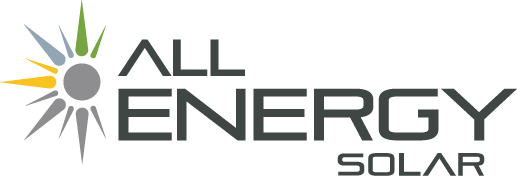Sustainability
Paving the way for eco-friendly transportation
At Marten Transport, we redefine logistics through our commitment to eco-friendly practices. Our journey spans from innovative solutions to sustainable milestones, ensuring a greener future in every mile.
Decades of sustainable progress
Notable achievements
Marten is widely recognized for its sustainable practices, earning multiple prestigious accolades.
- Smartway High Performance: Consistently listed for outstanding freight efficiency.
- Energy Efficient Leader: Awarded by Thermo King for our innovative energy-saving initiatives.
- Inbound Logistics Green Partner: For the fifth year in a row, we are recognized for our commitment to supply chain sustainability.
- Supplier Leadership on Climate Transition: Marten received these badges representing the progress we’ve made to reduce our impact on climate change.
Supplier LOCT is an educational platform created to accelerate action towards reducing supply chain carbon emissions.

“All Energy Solar first met with Marten in 2017. Our first project together was completed by the summer of 2018. We since have collaborated on a total of 18 renewable energy projects across Marten’s national network. We are looking forward to future opportunities where we can bet on the sun together.”
Solar & Efficiency
Through relentless pursuit of efficiency and innovation, Marten Transport has made significant advancements in operational practices.
Improved efficiency
- Solar Investments: Embracing solar technology across three key areas: terminals, trucks, and reefer units.
- Idle Reduction: Implementing strategies to significantly reduce idle times, enhancing fuel efficiency.
- APUs (Auxiliary Power Units): Utilizing APUs to maintain energy needs with less environmental impact.
Innovative operations
- Temperature Control Initiatives: Developing advanced temperature control techniques to optimize energy usage.
- Network Restructuring: Strategically restructuring our logistics network for greater efficiency and lower emissions.
- Truck to Rail Conversion: Transitioning towards multimodal transport solutions, reducing roadway congestion and emissions.
Environmental initiatives
Marten Transport actively advances environmental sustainability by significantly reducing overall mileage and carbon footprint, alongside implementing various eco-friendly initiatives.
- Internal Equipment Changes & Renewable Diesel Usage: Optimizing operations to reduce mileage and carbon emissions.
- Network Restructuring & Multimodal Shifts: Transitioning from truckload to intermodal for enhanced efficiency.
- Loading Warm & Reefer Run Initiative: Utilizing temperature technology to educate customers and reduce reefer usage.
- Solar Panel Installation: Equipping all Marten operated terminals and tractors with solar panels for renewable energy use.
- LED Lighting Conversion: Upgrading all lighting to energy-efficient LED.
- Lithium Battery Bank: Establishing a state-of-the-art lithium battery bank at the Jurupa Valley, California terminal.
Green efforts
Marten’s Green efforts reflect our unwavering commitment to a healthier planet, focusing on reducing our environmental impact.
- Greenhouse Gas Emissions Reduction: Implementing strategies to significantly lower emissions in all operations.
- Alternative Fuels and Energy Sources:
- Using renewable diesel in truck engines, APUs and reefer units to reduce emissions where renewable diesel is available.
- Utilizing solar panels for renewable energy generation.
- Implementing energy-efficient lighting solutions to conserve power.
- Reuse and Recycling Programs: Establishing comprehensive programs for recycling and reusing materials, reducing waste and conserving resources.
Marten’s cycle of improved efficiency
footprint reduction
Marten’s commitment to reducing its environmental footprint is an ongoing, circular process, dedicated to continuous improvement and sustainability.
Measuring Footprint
Assessing our environmental impact to guide our strategy.
Report Results
Sharing our progress transparently, fostering trust and accountability.
Improve Efficiency
Enhancing processes to reduce our environmental footprint.
Innovative Operations
Adopting the latest eco-friendly practices for operational excellence.
Capital Reinvestment
Keeping the latest technology and equipment for operational excellence, then beginning the cycle anew.
California’s Voluntary Carbon Market Disclosures Business Regulation Act (AB 1305) (“VCMDA”)
This information has been prepared and is provided for the sole purpose of disclosure under Section 44475 of Division 26 of the California Health and Safety Code (AB 1305) and is not intended, nor can it be relied on, to create legal relations, rights, or obligations. By posting information on its website, Marten Transport, Ltd. (“Marten”) is not conceding that any specific item is required to be disclosed nor waiving any arguments about the interpretation of AB 1305. This information is subject to change without notice.
Marten does not currently (a) market or sell carbon offsets, or (b) purchase or use voluntary carbon offsets when making claims regarding carbon neutrality.
Marten makes disclosures on this webpage regarding its efforts to reduce carbon emissions. Marten does not disclose any specific amounts of emissions reductions or targets for emissions reductions. Marten’s claims are based on (a) the use of equipment and route optimization techniques that result in better fuel efficiency, which is verified internally by fuel purchases and data downloaded from its fleet, (b) the use of intermodal railroad partners as an alternative to transport goods for certain customers that result in lower emissions as compared to transportation by truck, which is based on the emissions claims of its railroad partners, and (c) the use of renewable diesel fuel where available that results in lower emissions than petroleum diesel, which is based on emissions claims contained in third party publications regarding the benefits of renewable diesel fuel. There is no independent third-party verification of these claims.